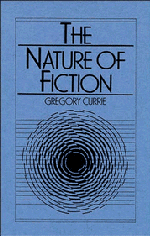Chapter 3 - INTERPRETATION
Published online by Cambridge University Press: 05 November 2011
Summary
In this chapter I make some applications of the theory of truth in fiction developed in Chapter 2. These applications concern questions about the nature of interpretation: Is there an irremediable relativism involved in interpretation? Is there an “intentional fallacy” one can commit in deciding what is fictionally true? What is the relation between fictional truth and literary style? Finally, I discuss a couple of problems raised by the use to which I have put the idea of a fictional author.
RELATIONALISM AND RELATIVISM
When we decide that Holmes is a human being, we don't decide that it's literally true that he is; we decide that it's true in the story that he is. We decide that FH(Holmes is human). But we are, at one remove, deciding about literal (not literary!) truth; we decide that it's true that FH(Holmes is human). According to my definition of truth in fiction, F(P) is true just in case it is reasonable to infer that the fictional author believes that P.
We do not make these inferences piecemeal. We do not pair off one sentence of the text with a proposition that we decide is true in the story and then move on to the next sentence. Judgments about what is true in the story are dependent upon the overall impression the text makes.
- Type
- Chapter
- Information
- The Nature of Fiction , pp. 99 - 126Publisher: Cambridge University PressPrint publication year: 1990



